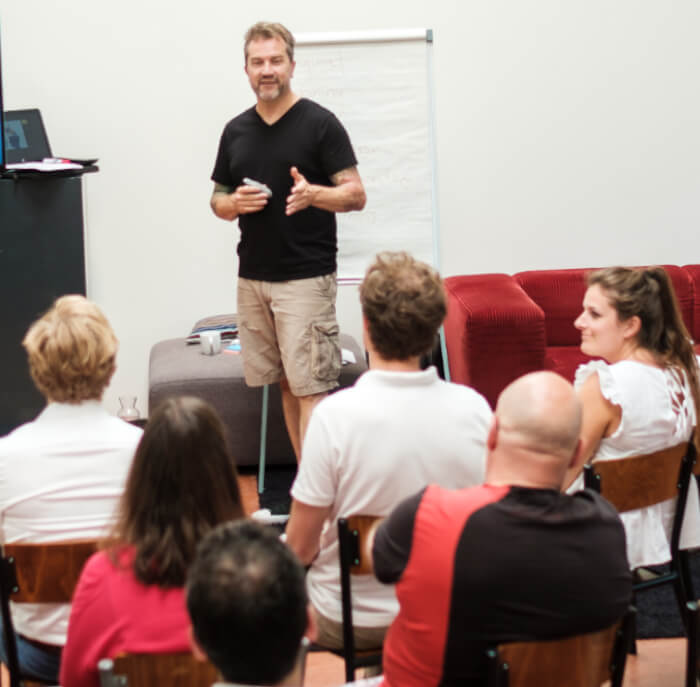
When you consider we operate in a global economy centred on innovation: product updates and upgrades, new editions, new models, new technology… this seems to be a very strange reaction.
Many companies are founded on successful principles that have brought great rewards. As a result, management and owners are often reluctant to fix what is not broken. While our world was changing slowly this was an acceptable balance of risk with reward. But as technology increasingly impacts the economy and diversity of thought and options continue to grow as fast, it is simply a traditional approach that can no longer be tolerated.
Often people have a very strong idea of who they are and what kind of person they are. People also often have a very firm idea that creativity is like magic practised by crazy, unreliable people. Therefore, to even begin to think they might also be creative is a threat to their identity. Of course, this is never true. Anyone who is effective in their work or their life is a problem solver… which requires creativity
Traditional management requires control. Creativity requires a degree of ambiguity, vagueness, untraceable time and effort. Many companies find this hard to swallow as their performance packages, incentive schemes and day to day regulation of costs depends on predictability and control. The trick is to stop counting minutes and hours and start watching outcomes and results. See how few people leave, compare to how much replacing people costs.
On some level, to suggest things need an overhaul is to insult tradition, the past, the successful history etc etc. This is more severe than just the status quo. This is often an unmovable stance where the fear of the future and the unknown is so huge that companies are prepared to risk everything in order to not change. Of course, the biggest disrespect you can deliver to your traditions it to fail and go out of business.
Be it the sense of power, control over budgets, straight out corruption or just a sense of personal fulfilment, people in business often have a vested interest in the way things are. To suggest thinking more creatively threatens to disrupt that and remove the benefits to many people. This response is only valid if the person concerned were to stand still… moving forward with the changes will create new emotional and intellectual investments and possibly even lead to greater fulfilment and work satisfaction.
These factors can all be overcome. The first step is always to make clear exactly what creativity is and how it works. Then to point out that to perform most tasks in business, some form of creativity is required…. Then perhaps we can move on from negative what if’s to positive ones.
Plenty of inspiration, stories, facts and research in the articles I publish every week. I write about creative events, thinking and research… anything that has creativity hidden in it. Read the articles…

Sign up for my fortnightly newsletter and receive FREE creativity tips and help with the challenges you currently face. A simple way to keep up to date with the world of creativity.
Creativity will save the world. I share tips, tricks and techniques for creative thinking based on scientific research and personal experience. There is no problem creativity cannot solve. More about speaking…

Like follow, donate: